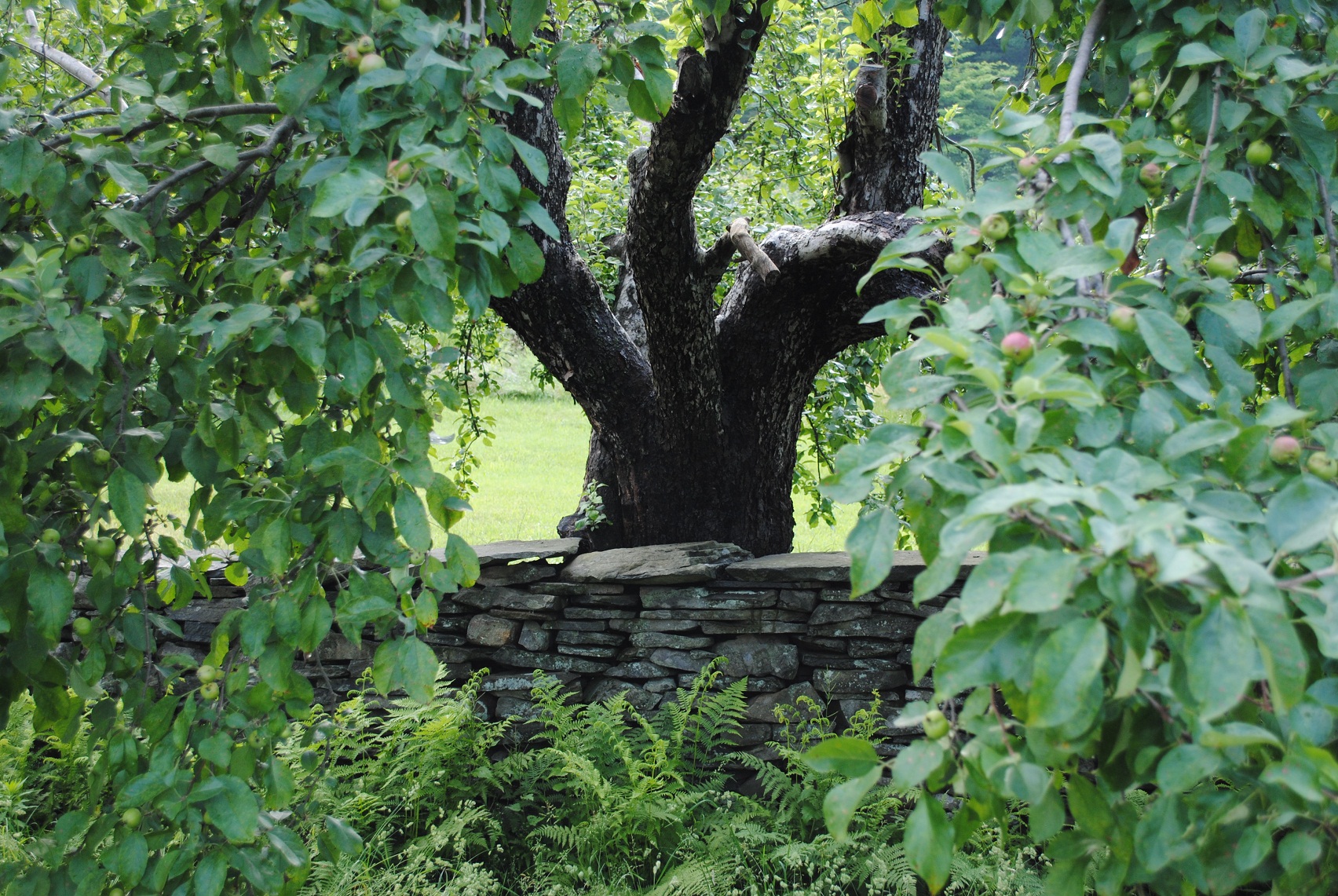I’m an apple farmer. It’s been almost a quarter century since I started foraging apples, 17 years since I planted my first row of trees, and over a dozen years since I began my homestead orchard, now with hundreds of trees, yet I only recently started calling myself an apple farmer – maybe six or seven years ago. Somehow I felt I hadn’t earned it yet.
There are stereotypes our culture assumes of orchard work, and I was equally biased. Today when visitors, particularly journalists, come to the farm I can tell they aren’t wowed by what they see. Somehow it doesn’t match with my reputation from the cider world. My orchard doesn’t fit their preconceptions of a commercial apple farm; my fruit isn’t of the same quality or quantity; and my 2005 tractor has less than 1,100 on the hours-meter, which ought to disqualify me as a farmer altogether. But I know what I’m doing, and just as important I know what I’m not doing. I am a commercial apple farmer.
So I flip the tables and inquire about what they were hoping to see or photograph, and I think I’ve discovered a common thread aligning their preconceptions. This cultural stereotype of orchard work seems to be emanating from a single source: ‘the perfect apple’. Because we’ve come to expect flawlessness in a dark red, shiny apple, or in a round, sweet golden apple, we no longer approach the orchard with an open mind. Even people like me, who are okay with imperfections, still instinctively, unflinchingly reinforce this standard when presented with options at the grocery store. No one grabs for the dull-colored apple or the one with scab or insect marks. And after generations of this sort of behavior, stock clerks won’t even give us the option. They’re tired of throwing out fruit; uglies aren’t allowed in their store anymore.
But here’s what I discovered about people’s insistence on perfect apples that really surprised me: our cultural standard for apple perfection extends far beyond the fruit to include the places and even the people surrounding the apple! Somewhere, somehow, lay consumers are getting the notion that they know what the apple environment is supposed to look like. But where the heck is this coming from?
Let’s look into this. We can fault television and magazine advertising for implanting an orchard fantasy in people’s minds, or we can fault consumers for simply not knowing the reality behind where their food comes from these days. Clearly both are culprits, but why aren’t we more skeptical of marketing, and why aren’t we more inquisitive about something so vital? If my homely-looking orchard and I are victims of agricultural profiling, we can say it’s because the dominant players in the apple industry control the narrative and are directing consumers toward what only they can produce (and why wouldn’t they do this – this is America, isn’t it?), but it’s also because of the way our culture selects authorities in the first place. We need to believe in experts, which is a much larger cultural vulnerability, easily exploited.
And who are these experts? Well, those who are financially successful in a particular industry are experts, right? Come on, do we not give the most profitable automatic authority, particularly over matters that made them rich in the first place? Of course we do! But we also grant automatic authority to scientists and researchers (the academic wing of an industry). And if both the large-scale apple farmer and the pomological researcher promote the same thing, as they do when it comes to ‘the perfect apple’, then the public has heard (with an a) all they need to on the subject of apple expertise – no need to challenge it.
Whether these two groups of people, scientists and the most successful, are the right people to be given authority is up for debate, but that’s not what I’m calling attention to here. What I’m saying is that my not matching up to expectations isn’t a failure on my part; it’s the failure of society when it comes to granting authority. As a culture of specialists, we excuse ourselves of firsthand knowledge in many vital fields (most alarmingly health) and champion a system of expertise to guide us.
Authority may be a societal construct to serve over us and protect us, but it’s not a foolproof system. And of course, I didn’t know I needed to question this when I first started learning about apple growing.
This excerpt is from Andy Brennan’s forthcoming book Uncultivated: Wild Apples, Real Cider and Complicated Art of Making a Living (Chelsea Green Publishing, 2019) and is reprinted with permission from the publisher.












0 Comments